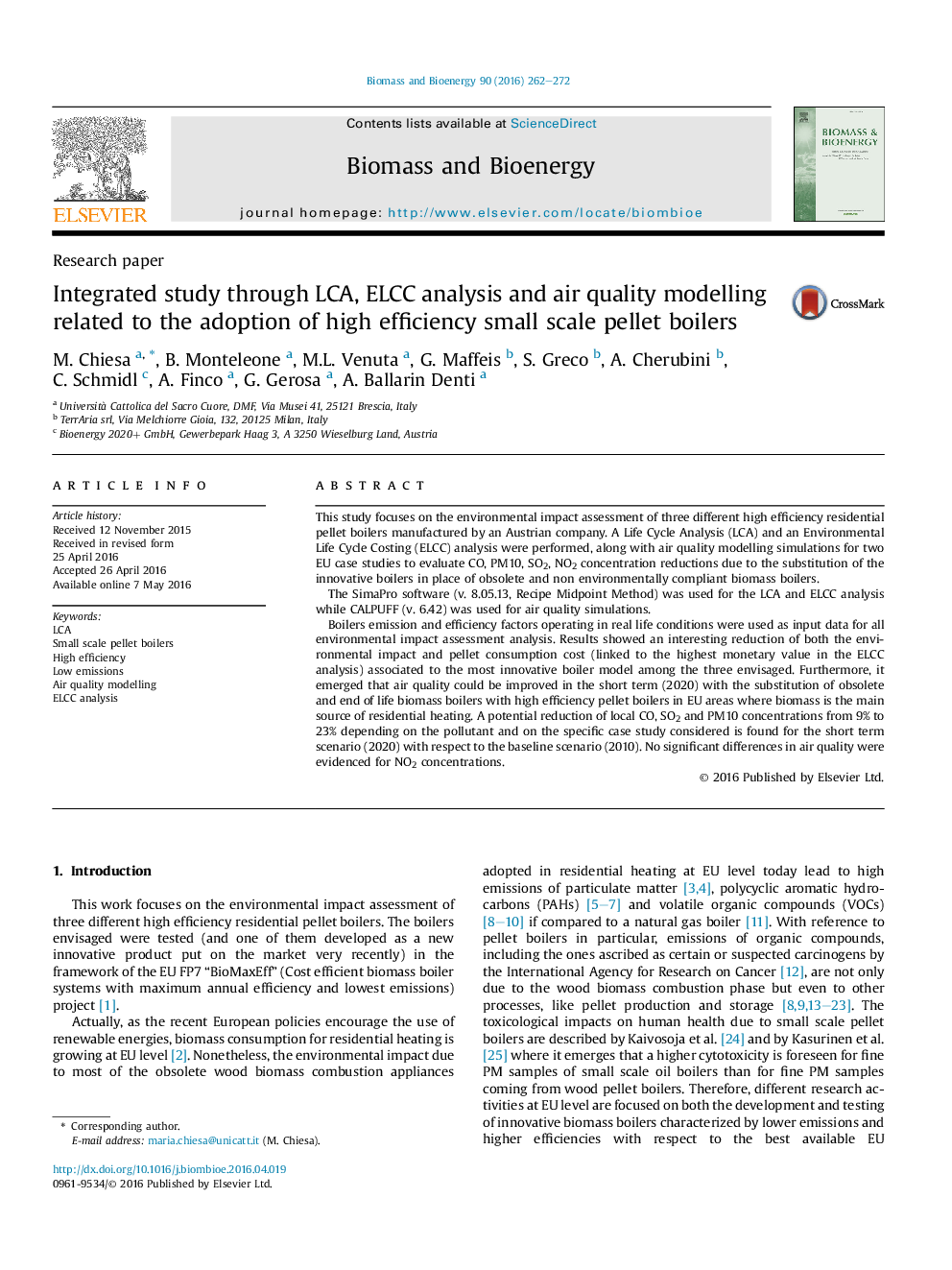| کد مقاله | کد نشریه | سال انتشار | مقاله انگلیسی | نسخه تمام متن |
|---|---|---|---|---|
| 676714 | 1459803 | 2016 | 11 صفحه PDF | دانلود رایگان |

• LCA results evidenced the lowest environmental impact ascribed to BW 102 boiler.
• BW 102 has shown a higher efficiency and lower pellet consumption than VA models.
• ELCC analysis evidenced the boilers life cycle phases with higher monetary values.
• Lower construction costs and pellet consumption will improve boilers eco-efficiency.
• High tech boilers can improve air quality in EU areas mainly heated by wood biomass.
This study focuses on the environmental impact assessment of three different high efficiency residential pellet boilers manufactured by an Austrian company. A Life Cycle Analysis (LCA) and an Environmental Life Cycle Costing (ELCC) analysis were performed, along with air quality modelling simulations for two EU case studies to evaluate CO, PM10, SO2, NO2 concentration reductions due to the substitution of the innovative boilers in place of obsolete and non environmentally compliant biomass boilers.The SimaPro software (v. 8.05.13, Recipe Midpoint Method) was used for the LCA and ELCC analysis while CALPUFF (v. 6.42) was used for air quality simulations.Boilers emission and efficiency factors operating in real life conditions were used as input data for all environmental impact assessment analysis. Results showed an interesting reduction of both the environmental impact and pellet consumption cost (linked to the highest monetary value in the ELCC analysis) associated to the most innovative boiler model among the three envisaged. Furthermore, it emerged that air quality could be improved in the short term (2020) with the substitution of obsolete and end of life biomass boilers with high efficiency pellet boilers in EU areas where biomass is the main source of residential heating. A potential reduction of local CO, SO2 and PM10 concentrations from 9% to 23% depending on the pollutant and on the specific case study considered is found for the short term scenario (2020) with respect to the baseline scenario (2010). No significant differences in air quality were evidenced for NO2 concentrations.
Journal: Biomass and Bioenergy - Volume 90, July 2016, Pages 262–272